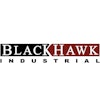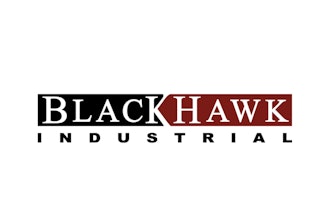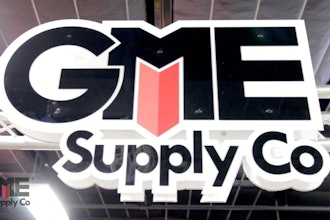
Taking Your Distributorship to
the Cloud
The Benefits and Efficiencies Distributors Can Gain From Cloud-Based ERP
Epicor White Paper
Taking Your Distributorship to the Cloud
1
Enterprise Resource Planning (ERP) has come a long way in
less than 20 years
Originally focusing on automating back-office functionality that didn’t involve customers,
ERP soon evolved to include several phases of a business’ transactional operations. ERP’s key
development through the 1990s and first decade of the 2000s was the rise of its collaboration
between transactional data and management areas such as customer relationship, supply chain,
inventory, human capital, and beyond.
Many distributors have already undergone several ERP system upgrades or are currently in the
midst of one. In Industrial Distribution’s 2017 Survey of Distributor Operations, 14 percent of
distributor respondents whose company didn’t have an ERP system planned to install one within
the next two years. Given the array of productivity benefits that ERP enable, it’s no wonder
distributors of all types are adding or upgrading ERP every month.
Now in the age of Industry 4.0, ERP is making its next and perhaps biggest evolution yet—to
the cloud.
What Is Cloud ERP?
The difference between a traditional, on-site ERP system and cloud ERP system is simple: On-
premises ERP software is installed on a company’s local hardware and servers and is managed
by its in-house staff. Cloud ERP, on the other hand, is a vendor-provided software-as-a-service
(SaaS) that is managed by that vendor via the Internet in a system the customer accesses
through a web browser.
Advantages Of Cloud ERP
On-site ERP can be upgraded time and time again, but the potential is limited, and the
challenges traditional ERP systems face are where cloud ERP excels:
Integration
Traditional ERP integration into a business’ other operating software can cause numerous
headaches. Cloud-based ERP helps break down technology silos within a business, like the
management for orders placed over the phone, via ecommerce and those orders placed via
mobile device. “The biggest thing is it gets distributors outside of their four walls. They’re not
constrained within them,” said Mark Jensen, director of product management—distribution at
Epicor Software Corporation. “In order to compete today, you have to figure out the web and
mobile, and the cloud allows you to get there faster.”
Mobility
On-premises ERP is often limited to an individual facility, whereas cloud-based ERP is seamlessly
connected across a company’s entire network as everyone has the same accessibility from their
web browser.
Adaptability
One of the limits of traditional ERP is its limited upward mobility. As distributors grow, they often
add more technology or dive deeper into ecommerce functions that are beyond their existing
ERP’s capabilities, requiring upgrades. Cloud-based ERP is ready for these factors, and can adjust
to a company’s specific business and technology needs. “You have to have a system that allows
you to take advantage of those newer technologies as their price point gets more attractive,
Taking Your Distributorship to the Cloud
2
and that’s going to happen very fast,” Jensen
said. “You have to look at your system and
see if it lets you apply something like artificial
intelligence to pricing.”
Manpower
With the cloud-based ERP vendor handling
management of the system, companies don’t
need a dedicated IT staff for it. Alternatively,
this allows that IT staff to focus on other
strategic areas. This is especially appealing for
those small and midsize distributors that don’t
have the budget for such employees or simply
aren’t tech-savvy themselves.
Lower operating cost
A cloud-based ERP has the potential to
eliminate the need for distributors to purchase
server, network, and storage hardware
necessary to maintain the platform onsite.
Instead of capital expenditures, distributors
can focus on operational expenditures.
Choosing A Provider
There are a number of cloud ERP providers
today, as the rise in the newer technology has
drawn new vendors to the industry.
Whereas many of those vendors focus solely
on their “cloud ERP-only” capabilities, it
certainly helps to have the expertise of a
provider that also has expertise in the on-
premises format.
In that regard, Epicor Software Corporation
differentiates itself in the market with its
wealth of knowledge. The company’s history
includes more than 40 years of business
software innovation for distributors—and
that amount of ERP knowledge makes
the company an expert resource to help
distributors of all sizes determine exactly what
type of ERP is right for them, be it on premises
or cloud-based.
The latest chapter in the Epicor legacy came
out of the company’s recent 2017 Insights
Customer Conference in May, where it
unveiled the latest cloud version of its
popular Prophet 21 ERP solution.
Epicor cloud-based ERP allows Epicor on-
premises ERP customers to move to the cloud
without seeing any disruption with their
business. With helping them become more
“You don’t have to re-train,
and to the millennials,
it looks modern and fresh.”
—Mark Jensen,
Director of Product Management—
Distribution
Epicor Software Corporation
Contact us for more information on Epicor products and services
+1.800.999.6995 [email protected] www.epicor.com
About Epicor
Epicor Software Corporation drives business growth. We provide flexible, industry-specific software that is designed around the needs of our
manufacturing, distribution, retail, and service industry customers. More than 40 years of experience with our customers’ unique business
processes and operational requirements is built into every solution—in the cloud or on premises. With a deep understanding of your industry,
Epicor solutions spur growth while managing complexity. The result is powerful solutions that free your resources so you can grow your
business. For more information, connect with Epicor or visit www.epicor.com.
About This Report
The information in this report was researched and produced by Industrial Distribution in conjunction with Epicor. Statistical data was researched
and compiled by Advantage Business Media in May 2017.
Taking Your Distributorship to the Cloud
The contents of this document are for informational purposes only and are subject to change without notice. Epicor Software Corporation makes no guarantee, representations, or warranties with
regard to the enclosed information and specifically disclaims, to the full extent of the law, any applicable implied warranties, such as fitness for a particular purpose, merchantability, satisfactory quality, or
reasonable skill and care. This document and its contents, including the viewpoints, dates, and functional content expressed herein are believed to be accurate as of its date of publication, December 2017.
The results represented in this testimonial may be unique to the particular user as each user’s experience will vary. The usage of any Epicor software shall be pursuant to the applicable end user license
agreement, and the performance of any consulting services by Epicor personnel shall be pursuant to applicable standard services terms and conditions. Usage of the solution(s) described in this document
with other Epicor software or third-party products may require the purchase of licenses for such other products. Epicor, the Epicor logo, and Prophet 21 are registered trademarks or trademarks of Epicor
Software Corporation in the United States, certain other countries and/or the EU. All other trademarks mentioned are the property of their respective owners. Copyright © 2017 Epicor Software Corpora-
tion. All rights reserved.
mobile and taking advantage of new
software technology, Epicor Prophet
21 customers can see all the benefits
of a cloud-based solution without the
headaches of a traditional ERP upgrade
or installation process. They won’t lose
any of the customization they’ve built
or functionality currently being used.
This is a big issue in today’s workforce
that sees many baby boomer generation
staff retiring and the onboarding of younger
distribution salespeople and managers.
“The generational shift was one of the drivers
of our cloud strategy,” Jensen said. “It allows
our customers to have an application that’s
not radically different. You don’t have to
re-train—and to the millennials, it looks
modern and fresh.”
What about distributors who currently aren’t
Epicor customers? Other cloud ERP providers
offer their solution through collaborating
with a third party that actually handles the
functionality. The Epicor solution is handled
all by Epicor. It’s just one reason distributors
should consider Prophet 21.
“With Epicor, you’re getting deep distribution functionality on the cloud and it’s all from us.”
—Mark Jensen,
Director of Product Management—Distribution
Epicor Software Corporation






















